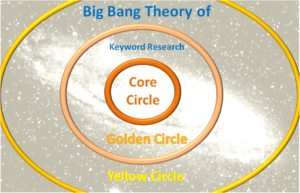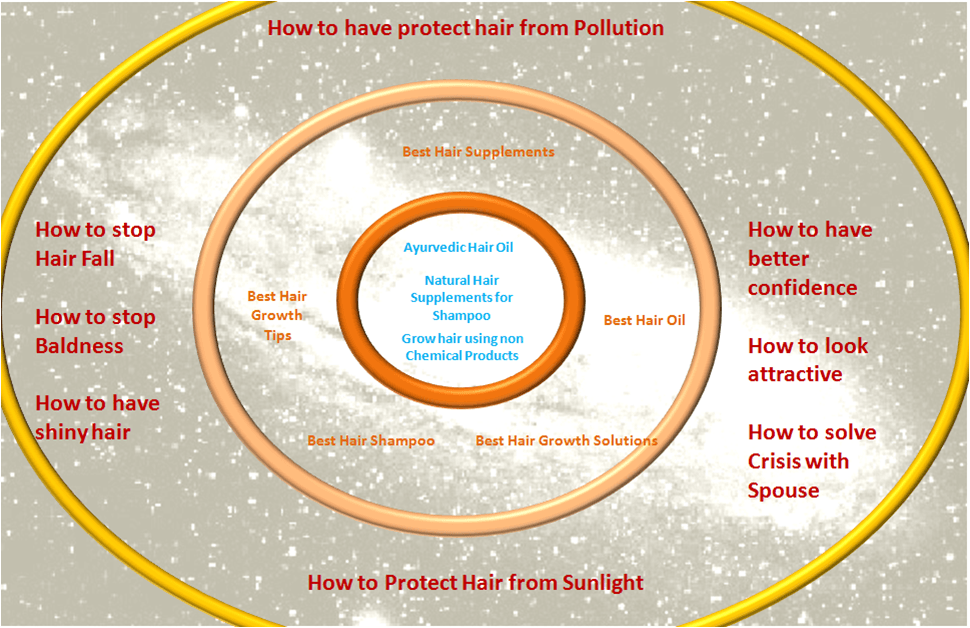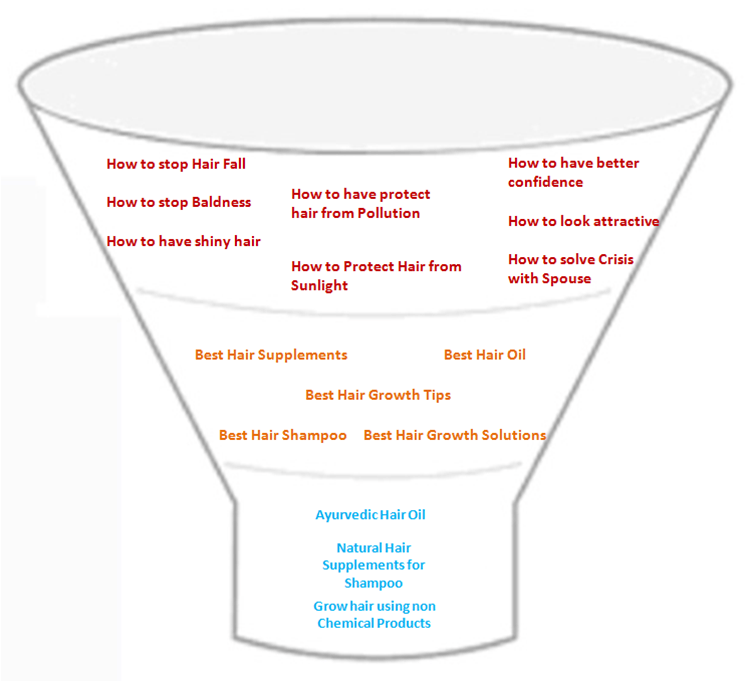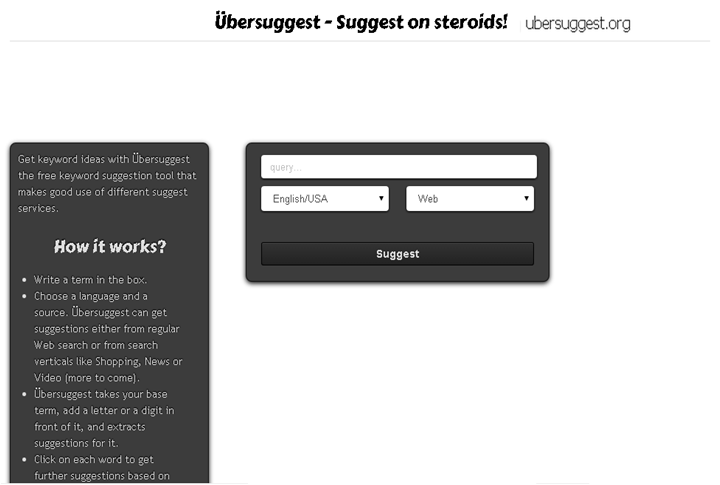USE BIG BANG THEORY BEFORE ANY KEYWORD RESEARCH TOOLS
The best Tip before using any Keyword Research/Analysis Tools which will optimize your SEO Campaigns and help you with better $$RoI$$


You have gone through many keyword research articles… I know this. And you already know ingredients of good Keyword Research (Click here for the Complete Checklist for Keyword Research) … I know this as well, and well, in case you do not know how to do a good Keyword Research, check this Ultimate Guide to Keyword Research
But in this article, I shall not be talking about the Best tools to do a Keyword Researchor the Unknown Secret & Free Tools to do Keyword Research, but more importantly what should you do before starting a Keyword Analysis.
It is simple, Use ‘BIG BANG THEORY’. Remember how our universe was created: with the Big Bang! Right…
Now this is how you must create any digital marketing campaign. I will explain you first why and how this works and then I will take you step by step on how to do it.
But before that…
WHAT IS BIG BANG THEORY OF KEYWORD RESEARCH?
This theory essentially takes one basic principle into consideration.
“Customize your offerings according to your Customer” i.e.
Your communication to customers/visitors should indicate to their need.
According to this theory, all our relevant keywords have to be segmented into three different segments, i.e.
1. Core Circle: Core Circle defines the Visitors closest to our Product Solution
2. Golden Circle: Golden Circle defines the Visitors Considering a Solution given by our Products
3. Yellow Circle: Yellow Circle defines the Visitors having the Problem our Product is solving or has some linkages to our Product
Solutions
We have our product offering in the core and customers requirements and preferences at the outer core.
You must be wondering about, why the name Big Bang is used to define this? The logic is simple, like the Big Bang is expanding the Universe; this theory is ever expanding our list of keywords and still keep us in perspective to create engaging and targeted Digital Assets.
Like the Big Bang, this gives us a list with Concentrated and Focused keywords at the Centre and more peripheral ones on the outer circle.
Let me be specific with examples…
Let us take a Case where Our Product is an Ayurvedic Hair Oil for Hair Growth.
So people relevant to my product fall under the three circles of Big Bang Theory are:
The Core Circle (visitor looking for):
1. Ayurvedic Hair Oil
2. Natural Hair Supplements for Shampoo
3. How to grow hair using non Chemical Products
The Golden Circle (visitor looking for):
1. Best Hair Supplements
2. Best Hair Shampoos
3. Best Hair Oil
4. Best Hair Growth Solutions
5. Best Hair Growth Tips
The Yellow Circle (visitor looking for):
How to’s of Hair
1. How to stop Hair Fall
2. How to stop Baldness
3. How to have shiny hair
4. How to have protect hair from Pollution
5. How to Protect Hair from Sunlight
Result of Hair Problems
1. How to have better confidence
2. How to look attractive
3. How to solve Crisis with Spouse
To sum the above visually:


After going into What the Big Bang Theory of Keyword Research is, let us understand
Why BIG BANG THEORY of Keyword Research Tools so important to segment our research according this theory.
The Circles of this Theory have specific roles to play, so as to convert our visitors into sales.
The role of the three Circles is:
1. Core Circle: Convert the Visitors to Sales
2. Golden Circle: Convert the Visitors into Prospects
3. Yellow Circle: Bring Traffic to our Digital Assets
The above roles of the circle clearly define the objective of any content or digital asset which we shall be creating using the Keywords in our research.
Now let us view these circle in terms of their stages in the Buying Funnel:


So the important point is that it makes a better business sense to segment our keywords in order to spell out their objective. This helps us immensely in figuring out the value of any keyword.
Now that we know the what and why of BIG BANG THEORY, let me take you to the step wise process on…
HOW TO USE THIS AND SEGMENT YOUR KEYWORD RESEARCH:
Step 1: Understand your customer and Create Buyer/User/Visitor Personas
In case, you do not know what a Buyer Persona really is, ultimate guide on how to create personas
Essentially, Hubspot defines Buyer Persona as,
“A buyer persona is a semi-fictional representation of your ideal customer based on market research and real data about your existing customers. When creating your buyer persona(s), consider including customer demographics, behavior patterns, motivations, and goals. The more detailed you are, the better.”
Understanding the Buyer is so much more important so as to make an impactful and engaging piece of content/Digital Asset.
It helps us to clearly understand the Pain of the Buyer and build and solution around that Pain so as to drive better sales to us.
Step 2: Identify and note the Thought Sequences/Keywords of the Buyer from the Personas
You must know an important aspect of any visitor online.
“They Exchange thought Sequences and these thoughts come out in the form of KEYWORDS”
So if you match the Though Sequences of the Buyer, they will choose to engage with your Digital Asset. This is the connect that catches Attention and drives more traffic to your Digital Asset.
For eg: if someone Searches “Best Ayurvedic Hair Supplement”… this clearly spells out that buyer:
1. Knows he has a Hair Problem
2. Requires a Hair supplement to fix that
3. Understands the Ayurvedic Supplement’s benefits
So the follow-on communication on the Landing Page should start with why we have the best Ayurvedic Supplement and not why Ayurvedic Supplement is better.
There are several tools to identify the thought sequences of the Buyer. My personal favourites being:
1. Google Autocomplete

2. Ubersuggest


3. MetaGlossary.com

You can understand on how to use them in this separate article.
This article lists down a host of tools to identify the keywords/Thought Sequences
Step 3: Segment these Thought Sequences into the Circles of Big Bang
This step essentially helps in prioritizing the Keyword, and hence helps in putting a value to the keyword.
One should use this basic rule in segmenting the keywords:
“Identify the Difficulty of selling your product/service to the buyer.”
Taking our example of Ayurvedic Hair Oil:
Easiest = Core Circle
Any visitor using the word Natural, Ayurvedic, Herbal or Anti – Chemical is the easiest bet for me so all these words qualify for the Core Circle
Easier = Golden Circle
Any visitor using the words Hair Solutions, Hair Products and not using words of Core Circle are relatively easier bet to convert and convince them to try
an Ayurvedic Solution so they qualify for the Golden Circle
Difficult = Yellow Circle
Any visitor using the words Hair Problem, How to’s only and not using the Core & Golden Circle Words qualify for the Yellow Circle.
Note:
You should define the circles in the following order of preference: Core Circle – – Golden Circle – – Yellow Circle
Step 4: Refine the keywords in the respective Circles by using Keyword Shortlisting and Finalizing Process
This process is very important to follow to understand the competition and get our buck for our Digital Marketing Efforts. In case you are not aware about this process, check this guide to understand this process
Step 5: Define the Objective of Creating Digital Assets for every Circle.
This step is where we bear the fruits of segmenting the keywords into the Circles of Big Bang. The crux of this step is to define the objective of the
Digital Assets so that the Visitors don’t lose the connect and find the right information scent to engage with our digital assets.
Going back to the example:
Core Circle:
Status of Visitor : Knows about the Benefits of Ayurveda, looking for options in Ayurvedic Hair Supplements
Objective of Digital Assets : Show Various Ayurvedic Hair Solutions and show why your solution is the best.
Golden Circle:
Status of Visitor : Knows about the various solutions to hair problem, looking for options in these solutions
Objective of Digital Assets : Show Various Hair Solutions and show why Ayurvedic solution is the best.
Yellow Circle:
Status of Visitor : Slightly aware about the Hair Problem, looking for ways to fix this problem
Objective of Digital Assets : Show Various Hair Solutions and why using a Hair Supplement is the best option.
In this way one can define the objective so that the digital assets created as specific and targeted.

This Theory of Keyword Research leads us to create targeted Digital Assets.
It primarily requires segmenting the keywords shortlisted by our Keyword Research into three Circle of Customer.
One may choose to associate these Circle to stages of Buying Cycle, but I have personally found using these Circle have helped me in keeping my content targeted, focused and engaging as buyer is the focus every time.





Wow…superb man..:)
You made keyword research so easy guiding step by step how to research and shortlist keywords.. Thanks valuable information
Awesome blog on keyword research theory. Thanks for sharing importance of big bang theory of keywords..Tools given are very helpful.
Thank you for valuable information.
Thanks for sharing this article. Definitely learned something new about Big Bang keyword research, as well as idea(s) on how to use these tools.
i dont know these techniques for keyword research before reading this article.. Thank you for your valuable information..
If you want to generate significant traffic to your site, it is very important to learn about keyword research. I think this information is a must read. Great idea for sharing!
In fact, I think you cannot rely on anyone Keyword Research tool as such because, in the long run, the search behavior keeps on changing and also fluctuates from country to country. Keeping all options open for a global traffic and targeting for the maximum possible targeted keyword phrases should be the aim for the keyword research phase.
Instead of focusing on only the keywords recommended by keyword research tools and Adwords also concentrate on the possible psychologies of users from various geographic areas unless you are concentrating only on a very particular area where only the language and slang of that place concerns for the search of that site. Online users from different places, of different age groups and the various educational backgrounds, think differently and use different language and jargon.
Instead of focusing on only specific fixed key terms we should work to keep the possibilities of a wider circle of permutations and combinations of key phrases open for the site. The analytics data, in fact, can give a proper meaning of what searches are actually taking place countrywide.
Anyways, very informative article. Delivers some great points to light…
Barakha you have nailed it. I always think that these tools are to get you activated towards understanding possible psychologies!
Thank you for your appreciation 🙂